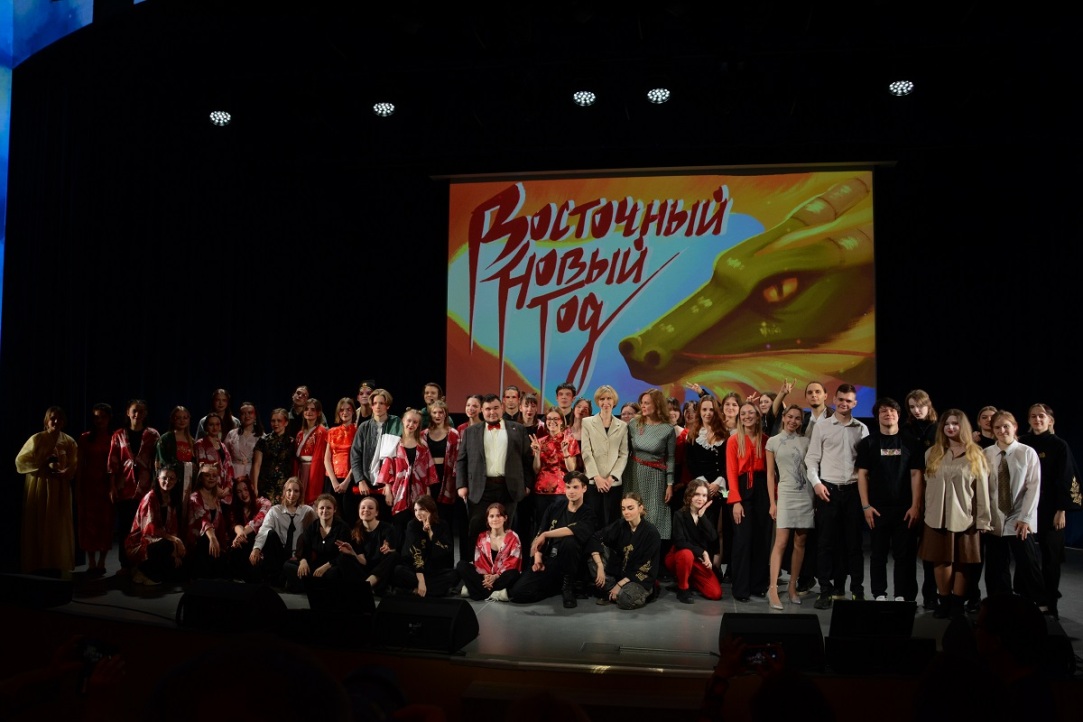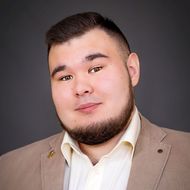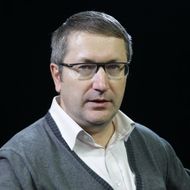Tea Ceremony, Naruto and Norigae: HSE Celebrates Year of the Green Wood Dragon

On the day of the second new moon after the winter solstice, the HSE Cultural Centre welcomed admirers of Chinese, Japanese, Korean, and Vietnamese cultures. HSE students, teachers, and guests celebrated the Lunar New Year with South Korean hit songs and popular anime openings. They attended calligraphy and origami classes, tried regional sweets, and had Far Eastern teas. The festival ended with a big concert.
From Panda to Frog
The event is organised every year by students and educational staff of the HSE Faculty of World Economy and International Affairs.
‘The specialisation of our faculty allows us to integrate the traditions of the areas we study into our lives. We are now celebrating the New Year for the third time. I am very happy that the ‘Holidays of the Peoples of the East’ project has turned into such a big event with so many happy faces,’ noted Deputy Dean for Research Alexandra Morozkina.
At the entrance to the Lunar Festival, guests could take a selfie with a panda before immersing themselves in the eastern atmosphere and participating in various activities. The HSE Chinese Club hosted calligraphy classes for adults and children, as well as a workshop on cutting out paper figures.
Visitors could also practice their origami skills by folding a frog, a symbol of good luck and well-being in China. They could also seek answers to life’s questions with the Yi Jing (the Book of Changes), a 3000-year-old Chinese text on divination.
From Cherry Blossoms to South Korean Idols
The Musubi Japanese Club hosted a quiz on the history, traditions, anime culture, and geography of Japan. Winners received stickers depicting ramen, cherry blossoms, and other elements of Japanese culture. Language learners could develop their Japanese writing skills in a master class by making postcards with New Year greetings in Japanese.
The Hanryang Korean Club trained handicraft lovers to make norigae, authentic decorations for the Korean national costume (hanbok). Guests created unique and beautiful pendants with only paper, beads, and a glue gun. The club members hosted a quiz about the history of South and North Koreas and talked about the Korean alphabet. Attendees could paint Hangul letters and then compare them with Chinese and Japanese characters.
The educational programme was followed by a tea party. The HSE Chinese club hosted a small Gongfu cha ceremony. Members of the Eastern Pier Club, who study South-East Asia, painted names and various words in Thai with henna on the hands of the guests and offered them nam dok anchan blue tea. This tea is made of dried buds of the Clitoria ternatea plant, also commonly known as bluebellvine or blue pea. Their fellow club members talked about Vietnamese culture and tested guests on their knowledge of regional traditions.
From Rabbit to Dragon
Young students and teachers of Asian Studies at the HSE Lyceum presented their own festival stand.
‘Our students in grades 10–11 have classes in history, economics, and Asian studies, as well as the Japanese, Chinese, Arabic, and Korean languages. We at the HSE Lyceum help them better understand their academic aspirations, train them for school competitions, and witness how they graduate as self-confident students who go on to organise cool events at HSE,’ says Senior Curriculum Coordinator Nikol Sukiasyants.
It was HSE Lyсeum students headed by Anna Yanishevskaya, Senior Lecturer at the HSE School of Asian Studies, who opened the final concert of the Lunar Festival.
The audience enjoyed dancing by Japanese and Korean studies students, a Japanese comedy theatre performance (kyogen), and a cover version of a song by BTS main vocalist Jungkook. Members of the Black Turtle Wudang Wushu and Qigong club demonstrated their mastery of Chinese martial arts.

Vitaly Senotrusov
‘We have been preparing for the concert for several months and had long selection processes, rehearsals, and script readings. Our team worked with the HSE Cultural Centre and the speakers, volunteers, and organisers. We achieved our goal—the concert was a sensation,’ says Vitaly Senotrusov, fourth-year student of the Asian and African Studies Programme, chairman of the HSE Chinese Club, and one of the hosts of the concert.
‘This year is the first time that Moscow is celebrating the Lunar New Year on such a grand scale. Tverskaya Street and Kamergerskiy Pereulok are festively decorated with traditional Chinese stands and red lanterns. Many people are taking pictures, children are really excited. I believe this is a great start to a wonderful tradition,’ concludes Head of the HSE School of Asian Studies Andrey Karneev.
See also:
'I Would Be Interested to Speak with Chinese Farmers'
Veronika Smirnova studies China's approach to global food security and has spent a year at Renmin University in Beijing. In this interview with the HSE Young Scientists project, she speaks about Xi Jinping's flagship initiatives, her interest in John Boyd Orr of the UN Food and Agriculture Organization (FAO), and her love for malatang and xiao long bao.
‘Mayflies Are Drifting along the River–This Is a Symbol that Everything Goes By’
Arseniy Uspenskij (Litvin) initially studied Indology but ultimately focused on Assyriology. In an interview with the HSE Young Scientists project, he discussed the metrical structure of Akkadian poetry, the deciphering of the Behistun inscription, and King Sargon.
Graduate of HSE University in St Petersburg Receives Award at ‘Chinese Bridge’ Competition in Beijing
In early September 2024, Anastasia Usyk, a graduate of the Bachelor’s Programme in Asian and African Studies at HSE University in St Petersburg, participated in the final round of the ‘Chinese Bridge’ International Language Competitionin Beijing, where she won the first prize in online voting and received the Audience Award and the Award for Most Outstanding Performance. She spoke about her experience in the competition,her studies and future plans in an interview with HSE News Service.
Charming East: HSE University Hosts Anniversary Oriental Crazy Day 2024
At the end of May, HSE University hosted the traditional Oriental Crazy Day. This year the holiday was held for the tenth time. For students, this is an opportunity to show their talents on stage, take part in fortune-telling with the Book of Changes, and learn more about the diversity of Asian cultures as well as the bachelor’s programme ‘Asian and African Studies.’
Oriental Crazy Day 2023: Photos with Panda, Calligraphy and Oriental Hospitality
On May 21, HSE School of Asian Studies organised their traditional Oriental Crazy Day for 2023. Prospective students learnt more about HSE degree programmes and admission process, and met with students and university teachers at the ‘Meeting under the Stars’ held at the HSE Cultural Centre.
‘Asian Studies is a New High Tech for Russia’
Russia's pivot to the East requires balanced actions, as well as knowledge of the languages, cultures, and traditions of Asian countries. Without this, Russian businesses will not be able to work there effectively. Experts and government representatives discussed the issue and the experience of Russia's regions working in Asia at ‘The Pivot to the East: The Regional Dimension’, the first interregional conference held by HSE University with the support of the Russian Ministry of Economic Development.
Talking Chinese, Writing Articles, and Drinking Tea: What Chinese Club Students Did this Year
The HSE Chinese Student Club at the Faculty of World Economy and International Affairs School of Asian Studies has completed its 2021/22 season. Its participants and organisers talked to the HSE News Service about how they discuss China’s socio-economic, political, and cultural development as part of the club’s events.
Asian Studies—An Essential Subject for Students of Different Specialisations
Russian society demonstrates a growing interest in Asia and North Africa, with economic, social, political and cultural expectations associated with the macro-region. What is more, demand for educational programmes and competencies related to Asian and African studies is projected to grow in Russian universities. HSE Vice Rector Sergey Roshchin and the heads of relevant HSE departments explain the university’s past and current efforts to respond to these challenges.
Japanese Theatre, Dance and Calligraphy at Oriental Crazy Day 2022
Oriental Crazy Day is a traditional festival of the School of Asian Studies, which has been held at HSE University for eight years. This time, Asian Studies students taught guests Chinese calligraphy, Arabic script, Yemeni dancing and origami. They were also introduced to kabuki theatre and traditional Japanese drums.
Pivot to the East: A Comprehensive Study of the Cultural and Civilisational Centres of the Non-Western World is the Top Priority
China and the Chinese world, South Asia, Southeast Asia, the Arab countries, Iran, Turkey, Central Asia and Africa are gaining new significance in Russia’s foreign policy. However, we do not know enough about the Eastern countries. It is necessary to change the priorities in education, starting from grammar school. Prospects for the development of domestic Oriental studies in the context of the new stage in the development of the system of international relations were discussed at a round table at HSE University.





